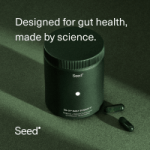A 9 Part Series on Being Exhausted! Part 4.
Testing for causes of your exhaustion is important.
The next leg of our journey through Exhausted!, Part 4, addresses what testing is available to determine the root cause(s) of fatigue and exhaustion. People need to advocate for their optimal wellness. They must make critical decisions about where they will find answers to what is causing their exhaustion and the necessary steps to lead a well-functioning life. For me, I’m currently participating in a three-month-long health program that first addresses detoxification to rid my body from toxins, body repair stage, and brain repair stage. I’m constantly looking for ways to improve my health and fatigue. My next step is to examine what testing is available to get to the root cause of my exhaustion so that I can live an energy-filled life. Let’s take a closer look at the testing options that can make a major difference in promoting a more balanced and energized life free from constant exhaustion.
Testing for Fatigue
Using an integrative approach is the best way to assess what metabolic and physiological processes are affected as well as determine the individualized treatment plan that will address the root cause of exhaustion. The following tests might be recommended to determine what and where the dysfunction is occurring.
Stool Test
A stool test checks for dysbiosis in the microbiome in the gut which affects the absorption and assimilation of nutrients from the food that is eaten.
Urine Tests:
Organic Acid Testing
Organic acid testing looks at the metabolic end products of cellular respiration, Kreb’s Cycle, and the microbiomes in the gut. Different metabolites in the urine indicate what internal processes are dysfunctional. Urine output identifies if mitochondria are effectively using carbohydrates, proteins, and fats in a meal to generate ATP efficiently as the body’s source of energy.
Toxicity Panels
Toxicity panels determine if the body has methylation problems due to exposure to micro toxins, Lyme, and chemical exposure which causes biotoxins. These panels are a comprehensive test to assess exposure to common environmental toxins and the damage that can be caused by this exposure.
Blood Tests:
Complete Hormone Testing
These tests are critical for testing cortisol levels which affect our energy throughout the day.
Comprehensive Thyroid Blood Test
This test determines the complete thyroid function which includes T3 and T4.
Fasting Glucose Test
This test measures your blood sugar levels, or glycosylated hemoglobin, also called a hemoglobin A1C test. The results of this test reflect your blood sugar levels over the previous 90 days.
Fasting Insulin Test
The insulin fasting blood test is chiefly used as a test of insulin levels and to diagnoses diabetes and insulin resistance. The test can also detect hypoglycemia, an insulin-related disorder. Insulin is a peptide hormone that is produced by the pancreas and is used to control the level of glucose in the blood.
Food Intolerance Test
The food intolerance test shows how the body reacts to IGG antibody reaction which determines exactly which foods are nourishing your body and which cause inflammation.
Nutrient Panel Test
The nutrient panel test tests the full nutrient spectrum which determines what nutrients you need and at what levels so that healing begins in the body with the appropriate supplementation for a person to perform at their highest.
Saliva Tests:
Four saliva samples are taken throughout the day to map out the person’s circadian rhythm which could be a contributing factor to exhaustion. This test measures the levels of the stress hormones DHEAS and cortisol in your saliva and provides an evaluation of how cortisol levels differ throughout the day.
Other Tests:
Visual Contrast Test
The Visual Contrast Test can be done online or at the doctor’s office to test visual acuity. A person has to differentiate the direction of light and dark lines. If a person shows impaired visual acuity, it would indicate biotoxin overload exposure (mold or tick-borne infections that create biotoxins in the body).
Wall Sit Test
The wall sit test measures the length of time you can stay against the wall. This test determines the person’s metabolic capacity as it relates to the energetic capacity of the lower limbs.
Pushups
Pushups are used to determine upper body strength.
Balance Test
The balance test is time-tested and determines the body’s ability to ‘see’ where it is in space while eyes are closed and one foot is lifted.
Orthostatic Test
The orthostatic test determines sympathetic depletion if a person experiences lightheadedness for 1-2 seconds after getting up too quickly. It can also be tested by having the patient lie in bed with the head flat for a minimum of 3 minutes, preferably 5. Measure the blood pressure and the pulse while the patient is supine. Instruct the patient to sit for 1 minute. Ask the patient about dizziness, weakness, or visual changes associated with position change.
After complete blood, saliva, urine, and/or stool testing, a person’s key cause(s) of exhaustion is assessed and an appropriate individualized treatment program can be instituted to restore balance to the body.
Adaptogenic Herbs and Nutritional Supplements
The stress of toxins and toxic substances in your system causes brain, thyroid, and adrenal fatigue. Thomas O’Bryan, DC, CCN, DACBN indicates that the body has no mechanism to protect itself from these toxins. The body is exposed to toxins in what we inhale, eat, or drink every day. This includes drinking from plastic bottles of water, inhaling chemtrails, and electromagnetic frequencies. Dr. Perlmutter also includes lead, mercury, air pollution, and glyphosate in food as things that impact our bodies. For example, new research indicates that 60-65% clinically of all Alzheimer’s patients who are diagnosed are because of inhalation of indoor and outdoor pollution.
Because manufacturers are not required to demonstrate the safety of chemicals, the EPA has no data to regulate chemicals that are all around us. According to K.P. Khalsa, 80,000 chemicals have been produced by humans – not all of which have been tested – over the last one hundred years. Our body doesn’t know what to do with the onslaught of chemicals that attack it on a daily basis. Oxidation occurs which leads to inflammation and causes accumulative damage to cells and tissues in the body over time.
How Toxins Damage our Bodies and Cause Exhaustion
Adaptogenic herbs and nutritional supplements play a major role in the body’s recovery from exhaustion. Adaptogens can improve the immune system, cognitive functioning, brain issue, sexual functioning, as well as muscle and energy stamina. K.P. Khalsa, Director, Integrative Medicine Institute, indicates that it will take weeks and months to optimize and sustain energy consistently over time. He also noted that nutritive tonics are good energizers for long-term stamina. Summer Bock, Fermentologist, Herbalist, and Health Coach, states that adaptogenic herbs can be taken for a period of time or be used for practice until a lesson is learned like getting into a calm state of being. A summary of adaptogenic herbs and their functions is as follows:
Herbs and Supplements for Mental Focus
- Ginkgo Bilboa: decreases brain fog and promotes brain health
- Magnesium Threonate: decreases brain fog and promotes brain health
- Gotu Kola: addresses mental acuity or focus, cognition, memory, and executive function
Herbs and Supplements for Sleep
- Valerian: provides a warming effect for sleep
- Holy Basil: relaxes the body by allowing it to be in a parasympathetic (rest and digest) state
- Skull Cap: provides a cooling effect for sleep
- Ashwagandha: provides energy for the body
- Reishi (Queen of Mushrooms): helps support the body’s sleep cycles
- L-Theanine: allows proteins to be broken down into amino acids
- L-Tryptophan: allows proteins to be broken down into amino acids
- Cacao in small doses: has a calming effect
Energy Boosting Herbs
- Lion’s Mane Mushroom: improves physical energy
- Ginseng: assists in balancing hormones.
- Eleutherococcus: relieves chronic long-term stress
- Astragalus: acts as an anti-inflammatory stimulant to activate the immune system or cool it off
- Rhodiola Rosea: sustains adrenal glands, supports the breakdown of cortisol, and regulates insulin for energy
- Ashwagandha: provides energy for the body
Now that testing is completed and adaptogenic herbs and supplements have been added to improve exhaustion, the next step of our journey is to realize that hope is critical for the desire to find answers and solutions for fatigue and exhaustion. Meghan Walker, ND, CEO, Entrepology Labs, wants all of us to ask ourselves the following questions, “What is my purpose?” and “Are we living a meaningful life?” When people identify a purpose in life, there is less recurrence of disease, better energy levels over time, less anxiety, and greater expediency of recovery than with people with no purpose. Let’s define the purpose of our lives to remediate the mental and physical root causes of fatigue and exhaustion. It is our positive mindset that will make life more meaningful by making good lifestyle choices. Get ready for the next step in our recovery!
















